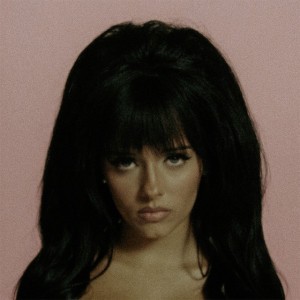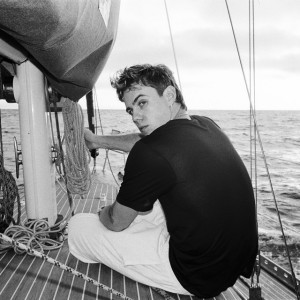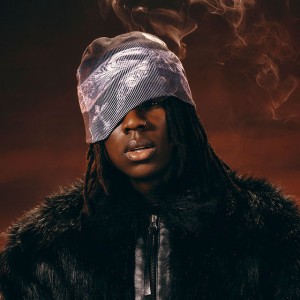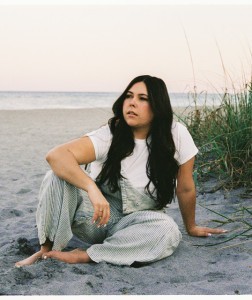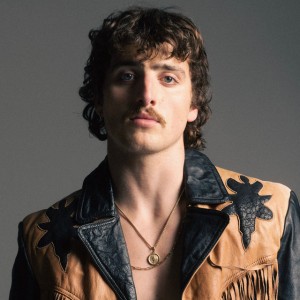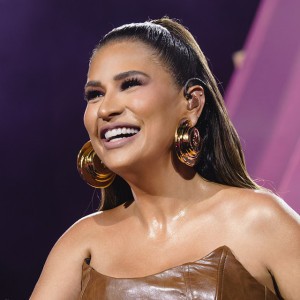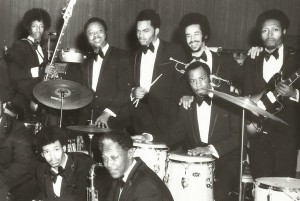
The J.B.’s
Influence: 56.16%
Fanbase: 30.61%
Trending: 68.94%
Career Level: Rising
Top Brand Affinity
Highest overlapping lifestyle brand
—
• —
• —
As of 2025-12-29
273,710
Social Media Followers
As of 2025-12-29
00:00:00
Hours Airplay
2025-12-29 15:18:44 UTC
Genres
r&b, funk & soulfunksouljazz funkcontemporary r&bjazz & standardssoul jazz
Biography
[wimpLink artistId="30355"]The J.B.'s[/wimpLink] were the legendary supporting cast of musicians behind [wimpLink artistId="6361"]James Brown[/wimpLink], earning a well-deserved reputation as the tightest, best-drilled instrumental ensemble in all of funk. The name [wimpLink artistId="30355"]J.B.'s[/wimpLink] is most often associated with three hornmen in particular -- saxophonists [wimpLink artistId="3526881"]Maceo Parker[/wimpLink] and [wimpLink artistId="3909738"]Alfred "Pee Wee" Ellis[/wimpLink], and trombonist [wimpLink artistId="3669747"]Fred Wesley[/wimpLink], all of whom originally joined [wimpLink artistId="6361"]Brown[/wimpLink]'s backing band at various points during the '60s. As a recording entity unto themselves, however, the J.B.'s enjoyed a distinctly defined heyday from 1970-1975, under the musical directorship of [wimpLink artistId="3669747"]Wesley[/wimpLink] (though [wimpLink artistId="6361"]Brown[/wimpLink], naturally, remained a strong presence). [wimpLink artistId="30355"]The J.B.'s[/wimpLink] were billed under a variety of alternate names on their own singles and albums -- [wimpLink artistId="30356"]Fred Wesley and the J.B.'s[/wimpLink], [wimpLink artistId="5976856"]Maceo and the Macks[/wimpLink], Fred and the New J.B.'s, the James Brown Soul Train, [wimpLink artistId="30517"]the Last Word[/wimpLink], [wimpLink artistId="30518"]the First Family[/wimpLink], and more. The core group of personnel, despite some turnover on the periphery, remained fairly steady from 1971 on, at least until [wimpLink artistId="6361"]Brown[/wimpLink]'s creative downturn precipitated several important defections.
The first official version of the J.B.'s was formed in 1970, after the notoriously demanding [wimpLink artistId="6361"]Brown[/wimpLink]'s regular band (excepting organist/vocalist [wimpLink artistId="3522003"]Bobby Byrd[/wimpLink]) walked out on him. Caught in a pinch, [wimpLink artistId="6361"]Brown[/wimpLink] recruited a Cincinnati-based R&B band called the Pacemakers, who'd already toured behind [wimpLink artistId="6361"]Brown[/wimpLink] favorite [wimpLink artistId="3702020"]Hank Ballard[/wimpLink]. Brothers [wimpLink artistId="13991760"]Phelps "Catfish" Collins[/wimpLink] (guitar) and [wimpLink artistId="7171"]William "Bootsy" Collins[/wimpLink] (bass) anchored the lineup, as well as the first [wimpLink artistId="30355"]J.B.'s[/wimpLink] single, 1970's "The Grunt." The Collins brothers, of course, would play a crucial role in [wimpLink artistId="6361"]Brown[/wimpLink]'s transition to heavy, groove-centered funk. One by one, some of [wimpLink artistId="6361"]Brown[/wimpLink]'s previous bandmembers returned to the fold, including [wimpLink artistId="3669747"]Fred Wesley[/wimpLink], who accepted [wimpLink artistId="6361"]Brown[/wimpLink]'s offer to become musical director of the J.B.'s in December 1970. However, the lineup splintered with the departure of the Collins brothers just a few months later, leaving [wimpLink artistId="3669747"]Wesley[/wimpLink] with only guitarist [wimpLink artistId="12563201"]Hearlon "Cheese" Martin[/wimpLink], drummer [wimpLink artistId="12922847"]John "Jabo" Starks[/wimpLink], and tenor saxman [wimpLink artistId="14517162"]St. Clair Pinckney[/wimpLink]. This nucleus was quickly fleshed out with bassist Fred Thomas and saxophonist [wimpLink artistId="5109627"]Jimmy Parker[/wimpLink] (who'd never played alto prior to joining the band); soon, there was also a trumpet section, usually featuring Jerone "Jasaan" Sanford, [wimpLink artistId="14287400"]Russell Crimes[/wimpLink], and Isiah "Ike" Oakley.
[wimpLink artistId="6361"]Brown[/wimpLink] began to release recordings by the newly constituted [wimpLink artistId="30355"]J.B.'s[/wimpLink] on his own People label with some frequency beginning in 1971, and the group scored a couple of Top 40 R&B hits with "Pass the Peas" and "Gimme Some More." By 1972, previous [wimpLink artistId="6361"]Brown[/wimpLink] guitarist [wimpLink artistId="3698756"]Jimmy Nolen[/wimpLink] had returned alongside [wimpLink artistId="12563201"]Cheese Martin[/wimpLink], and conga player [wimpLink artistId="7174873"]Johnny Griggs[/wimpLink] was back in tow as well. That year saw the release of the first [wimpLink artistId="30355"]J.B.'s[/wimpLink] full-length, [wimpLink albumId="54841913"]Food for Thought[/wimpLink]. [wimpLink artistId="3669747"]Wesley[/wimpLink] was still the band's only real soloist, so in early 1973, [wimpLink artistId="6361"]Brown[/wimpLink] convinced legendary alto man [wimpLink artistId="3526881"]Maceo Parker[/wimpLink] to rejoin. His first record back with the group was "Doing It to Death," a long jam with guest vocals from [wimpLink artistId="6361"]Brown[/wimpLink] that topped the R&B charts in edited form; it was also the title track of their second album, and the first single credited to [wimpLink artistId="30356"]Fred Wesley & the J.B.'s[/wimpLink], affirming that [wimpLink artistId="3669747"]Wesley[/wimpLink] was still without question the leader. Still, the J.B.'s also began to cut sides under the name [wimpLink artistId="5976856"]Maceo & the Macks[/wimpLink], including the Top 20 R&B hit "Soul Power '74" and the 1974 album Us!!. Meanwhile, under their original name, the [wimpLink artistId="3669747"]Wesley[/wimpLink]-led [wimpLink artistId="30355"]J.B.'s[/wimpLink] released another successful LP that year in [wimpLink albumId="54818802"]Damn Right I Am Somebody[/wimpLink], which spun off three Top 40 R&B hits in "Same Beat," "If You Don't Get It the First Time, Back Up and Try It Again, Party," and the title track. The follow-up album, [wimpLink albumId="95842982"]Breakin' Bread[/wimpLink], issued later that year, was credited to Fred and the New J.B.'s, even though the band's personnel remained essentially the same (although [wimpLink artistId="37973566"]John Morgan[/wimpLink] was easing into [wimpLink artistId="12922847"]Starks[/wimpLink]' slot as the regular drummer).
By late 1974, however, [wimpLink artistId="6361"]Brown[/wimpLink]'s commercial momentum was beginning to slow, and that carried over to the J.B.'s as well. The First Family single "Control (People Go Where We Send You)," which featured [wimpLink artistId="6361"]Brown[/wimpLink], [wimpLink artistId="30265"]Lyn Collins[/wimpLink], and other vocalists, failed to perform up to expectations. By the time of 1975's [wimpLink albumId="54841977"]Hustle With Speed[/wimpLink] album, band morale was low, and [wimpLink artistId="3669747"]Wesley[/wimpLink] was growing frustrated with [wimpLink artistId="6361"]Brown[/wimpLink]'s sudden loss of direction. On the Fourth of July, [wimpLink artistId="3669747"]Wesley[/wimpLink] quit the group to join up with [wimpLink artistId="6101"]George Clinton[/wimpLink], and [wimpLink artistId="3526881"]Maceo Parker[/wimpLink] soon followed. Bassist Thomas, drummers [wimpLink artistId="12922847"]Starks[/wimpLink] (who'd joined [wimpLink artistId="5307"]B.B. King[/wimpLink]'s band) and [wimpLink artistId="37973566"]Morgan[/wimpLink], guitarist [wimpLink artistId="12563201"]Martin[/wimpLink], and saxophonist [wimpLink artistId="5109627"]Jimmy Parker[/wimpLink] all drifted away, leaving [wimpLink artistId="3698756"]Jimmy Nolen[/wimpLink] and [wimpLink artistId="14287400"]Russell Crimes[/wimpLink] the only consistent members left on the final [wimpLink artistId="30355"]J.B.'s[/wimpLink] single, 1976's "Everybody Wanna Get Funky One More Time." Polydor subsequently shut down [wimpLink artistId="6361"]Brown[/wimpLink]'s People imprint, effectively ending the myriad side projects he'd managed during the first half of the decade. He continued to tour with differing versions of the J.B.'s, including a late-'70s outfit dubbed the J.B.'s International, but for all intents and purposes, the true [wimpLink artistId="30355"]J.B.'s[/wimpLink] no longer existed.
Periodic [wimpLink artistId="30355"]J.B.'s[/wimpLink] reunions ensued in the years to come; [wimpLink artistId="3669747"]Wesley[/wimpLink], [wimpLink artistId="3526881"]Parker[/wimpLink], and [wimpLink artistId="3909738"]Alfred Ellis[/wimpLink] (who actually only played on a couple of [wimpLink artistId="30355"]J.B.'s[/wimpLink] sessions) toured Europe with [wimpLink artistId="3522003"]Bobby Byrd[/wimpLink] in 1988, and cut a reunion album, Pee Wee, Fred and Maceo, the following year. They continued to tour and record together off and on during the '90s under the name the JB Horns. A more extensive [wimpLink artistId="30355"]J.B.'s[/wimpLink] reunion took place in 2002 on the album Bring the Funk On Down, which also included [wimpLink artistId="7171"]Bootsy Collins[/wimpLink], [wimpLink artistId="3522003"]Bobby Byrd[/wimpLink], and [wimpLink artistId="12922847"]Jabo Starks[/wimpLink], among others. ~ Steve Huey
The first official version of the J.B.'s was formed in 1970, after the notoriously demanding [wimpLink artistId="6361"]Brown[/wimpLink]'s regular band (excepting organist/vocalist [wimpLink artistId="3522003"]Bobby Byrd[/wimpLink]) walked out on him. Caught in a pinch, [wimpLink artistId="6361"]Brown[/wimpLink] recruited a Cincinnati-based R&B band called the Pacemakers, who'd already toured behind [wimpLink artistId="6361"]Brown[/wimpLink] favorite [wimpLink artistId="3702020"]Hank Ballard[/wimpLink]. Brothers [wimpLink artistId="13991760"]Phelps "Catfish" Collins[/wimpLink] (guitar) and [wimpLink artistId="7171"]William "Bootsy" Collins[/wimpLink] (bass) anchored the lineup, as well as the first [wimpLink artistId="30355"]J.B.'s[/wimpLink] single, 1970's "The Grunt." The Collins brothers, of course, would play a crucial role in [wimpLink artistId="6361"]Brown[/wimpLink]'s transition to heavy, groove-centered funk. One by one, some of [wimpLink artistId="6361"]Brown[/wimpLink]'s previous bandmembers returned to the fold, including [wimpLink artistId="3669747"]Fred Wesley[/wimpLink], who accepted [wimpLink artistId="6361"]Brown[/wimpLink]'s offer to become musical director of the J.B.'s in December 1970. However, the lineup splintered with the departure of the Collins brothers just a few months later, leaving [wimpLink artistId="3669747"]Wesley[/wimpLink] with only guitarist [wimpLink artistId="12563201"]Hearlon "Cheese" Martin[/wimpLink], drummer [wimpLink artistId="12922847"]John "Jabo" Starks[/wimpLink], and tenor saxman [wimpLink artistId="14517162"]St. Clair Pinckney[/wimpLink]. This nucleus was quickly fleshed out with bassist Fred Thomas and saxophonist [wimpLink artistId="5109627"]Jimmy Parker[/wimpLink] (who'd never played alto prior to joining the band); soon, there was also a trumpet section, usually featuring Jerone "Jasaan" Sanford, [wimpLink artistId="14287400"]Russell Crimes[/wimpLink], and Isiah "Ike" Oakley.
[wimpLink artistId="6361"]Brown[/wimpLink] began to release recordings by the newly constituted [wimpLink artistId="30355"]J.B.'s[/wimpLink] on his own People label with some frequency beginning in 1971, and the group scored a couple of Top 40 R&B hits with "Pass the Peas" and "Gimme Some More." By 1972, previous [wimpLink artistId="6361"]Brown[/wimpLink] guitarist [wimpLink artistId="3698756"]Jimmy Nolen[/wimpLink] had returned alongside [wimpLink artistId="12563201"]Cheese Martin[/wimpLink], and conga player [wimpLink artistId="7174873"]Johnny Griggs[/wimpLink] was back in tow as well. That year saw the release of the first [wimpLink artistId="30355"]J.B.'s[/wimpLink] full-length, [wimpLink albumId="54841913"]Food for Thought[/wimpLink]. [wimpLink artistId="3669747"]Wesley[/wimpLink] was still the band's only real soloist, so in early 1973, [wimpLink artistId="6361"]Brown[/wimpLink] convinced legendary alto man [wimpLink artistId="3526881"]Maceo Parker[/wimpLink] to rejoin. His first record back with the group was "Doing It to Death," a long jam with guest vocals from [wimpLink artistId="6361"]Brown[/wimpLink] that topped the R&B charts in edited form; it was also the title track of their second album, and the first single credited to [wimpLink artistId="30356"]Fred Wesley & the J.B.'s[/wimpLink], affirming that [wimpLink artistId="3669747"]Wesley[/wimpLink] was still without question the leader. Still, the J.B.'s also began to cut sides under the name [wimpLink artistId="5976856"]Maceo & the Macks[/wimpLink], including the Top 20 R&B hit "Soul Power '74" and the 1974 album Us!!. Meanwhile, under their original name, the [wimpLink artistId="3669747"]Wesley[/wimpLink]-led [wimpLink artistId="30355"]J.B.'s[/wimpLink] released another successful LP that year in [wimpLink albumId="54818802"]Damn Right I Am Somebody[/wimpLink], which spun off three Top 40 R&B hits in "Same Beat," "If You Don't Get It the First Time, Back Up and Try It Again, Party," and the title track. The follow-up album, [wimpLink albumId="95842982"]Breakin' Bread[/wimpLink], issued later that year, was credited to Fred and the New J.B.'s, even though the band's personnel remained essentially the same (although [wimpLink artistId="37973566"]John Morgan[/wimpLink] was easing into [wimpLink artistId="12922847"]Starks[/wimpLink]' slot as the regular drummer).
By late 1974, however, [wimpLink artistId="6361"]Brown[/wimpLink]'s commercial momentum was beginning to slow, and that carried over to the J.B.'s as well. The First Family single "Control (People Go Where We Send You)," which featured [wimpLink artistId="6361"]Brown[/wimpLink], [wimpLink artistId="30265"]Lyn Collins[/wimpLink], and other vocalists, failed to perform up to expectations. By the time of 1975's [wimpLink albumId="54841977"]Hustle With Speed[/wimpLink] album, band morale was low, and [wimpLink artistId="3669747"]Wesley[/wimpLink] was growing frustrated with [wimpLink artistId="6361"]Brown[/wimpLink]'s sudden loss of direction. On the Fourth of July, [wimpLink artistId="3669747"]Wesley[/wimpLink] quit the group to join up with [wimpLink artistId="6101"]George Clinton[/wimpLink], and [wimpLink artistId="3526881"]Maceo Parker[/wimpLink] soon followed. Bassist Thomas, drummers [wimpLink artistId="12922847"]Starks[/wimpLink] (who'd joined [wimpLink artistId="5307"]B.B. King[/wimpLink]'s band) and [wimpLink artistId="37973566"]Morgan[/wimpLink], guitarist [wimpLink artistId="12563201"]Martin[/wimpLink], and saxophonist [wimpLink artistId="5109627"]Jimmy Parker[/wimpLink] all drifted away, leaving [wimpLink artistId="3698756"]Jimmy Nolen[/wimpLink] and [wimpLink artistId="14287400"]Russell Crimes[/wimpLink] the only consistent members left on the final [wimpLink artistId="30355"]J.B.'s[/wimpLink] single, 1976's "Everybody Wanna Get Funky One More Time." Polydor subsequently shut down [wimpLink artistId="6361"]Brown[/wimpLink]'s People imprint, effectively ending the myriad side projects he'd managed during the first half of the decade. He continued to tour with differing versions of the J.B.'s, including a late-'70s outfit dubbed the J.B.'s International, but for all intents and purposes, the true [wimpLink artistId="30355"]J.B.'s[/wimpLink] no longer existed.
Periodic [wimpLink artistId="30355"]J.B.'s[/wimpLink] reunions ensued in the years to come; [wimpLink artistId="3669747"]Wesley[/wimpLink], [wimpLink artistId="3526881"]Parker[/wimpLink], and [wimpLink artistId="3909738"]Alfred Ellis[/wimpLink] (who actually only played on a couple of [wimpLink artistId="30355"]J.B.'s[/wimpLink] sessions) toured Europe with [wimpLink artistId="3522003"]Bobby Byrd[/wimpLink] in 1988, and cut a reunion album, Pee Wee, Fred and Maceo, the following year. They continued to tour and record together off and on during the '90s under the name the JB Horns. A more extensive [wimpLink artistId="30355"]J.B.'s[/wimpLink] reunion took place in 2002 on the album Bring the Funk On Down, which also included [wimpLink artistId="7171"]Bootsy Collins[/wimpLink], [wimpLink artistId="3522003"]Bobby Byrd[/wimpLink], and [wimpLink artistId="12922847"]Jabo Starks[/wimpLink], among others. ~ Steve Huey
Login to View Full Artist Stats
Next refresh: —
Top Brand Affinities
View Social Media Report
| Brand | Category | Score |
|---|---|---|
|
Affinity data is not available for this artist.
We couldn’t find any connected social media accounts yet.
|
||
Official Profiles
Login to view Contact
LoginArtist: The J.B.’s
Date Range: 2025-12-29 → 2025-12-29
Total Airplay Time: 0h 0m 0s across 0 Radio Stations
The map shows every radio station that aired The J.B.’s today. Use the controls to highlight stations with the most or least airtime.
Top 10 Songs Played Today
- Radio airplay data is being collected. Please check back soon.
Total Streams (2025-10-09)
Total: 995,965
| PLATFORM | TOTAL | % | |
|---|---|---|---|
| [+] |
|
781,040 | 78.42% |
| [+] |
|
214,925 | 21.58% |
| [+] |
|
0 | 0.00% |
| [+] |
|
0 | 0.00% |
| [+] |
|
0 | 0.00% |
| [+] |
|
0 | 0.00% |
| [+] |
|
0 | 0.00% |
| [+] |
|
0 | 0.00% |
| [+] |
|
0 | 0.00% |
Concerts
Upcoming events from today (UTC) to the next 6 months.
| Date/Time (UTC) | Event | Venue | Location | Tickets |
|---|---|---|---|---|
| No upcoming concerts found. | ||||




